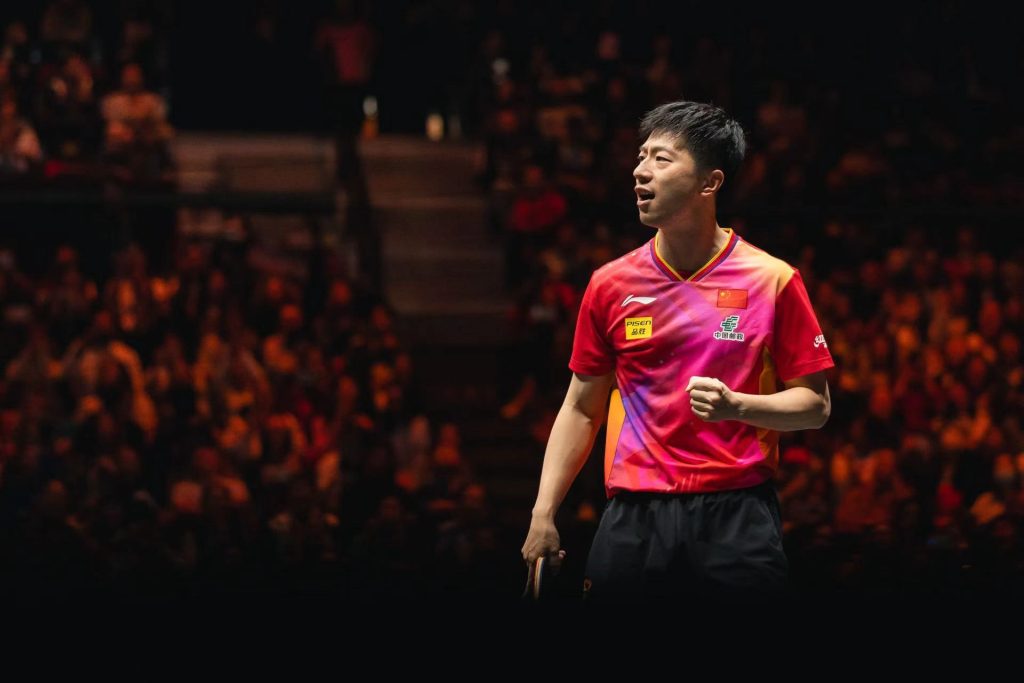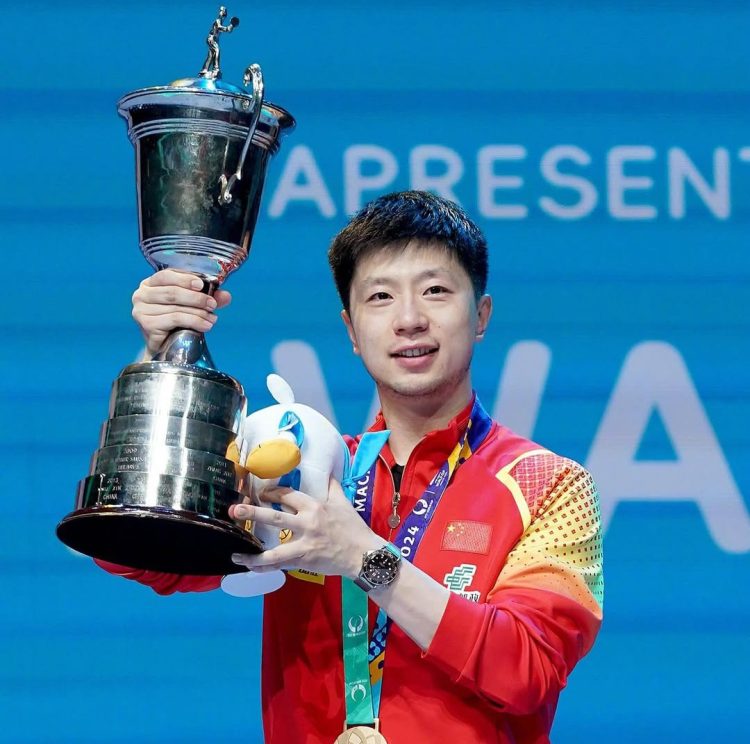Chinese table tennis has long been a dominant force in the sport, with a rich history of producing world-class athletes who have consistently outperformed their international competition. From legends like Deng Yaping, Wang Nan, and Zhang Yining in the past to the modern-day supremacy of Ma Long, Chinese table tennis has been synonymous with excellence. Ma Long, often regarded as one of the greatest table tennis players of all time, has led the charge in recent years, collecting countless World Championship titles and Olympic gold medals.
However, as Ma Long approaches the twilight of his illustrious career, questions are rising about what will happen to Chinese table tennis after his retirement. How will the sport continue to evolve, and more importantly, who will be the next player to carry the torch as China’s new table tennis superstar? This article will explore the future of Chinese table tennis in the post-Ma Long era and identify the key players who could succeed him.
1. Ma Long’s Legendary Career: The Pinnacle of Table Tennis
Ma Long’s career is often seen as the benchmark for excellence in modern table tennis. Since breaking onto the international scene, he has amassed an impressive collection of achievements, including multiple World Championship titles, Olympic gold medals, and World Cup victories. His technical mastery, consistency, and mental toughness have made him nearly unbeatable in his prime, and he is widely regarded as the best table tennis player in history.
Ma Long’s style is a combination of power and precision, using both his forehand and backhand to execute a game that is as much about strategy as it is about physical prowess. His adaptability to different styles of play—whether attacking or countering—has kept him at the top of his game for years, even as younger competitors have emerged.
His dominance on the international stage, especially at the Olympics, has solidified his place in the history books. At the Tokyo 2020 Olympics, Ma Long secured his second Olympic gold medal in men’s singles, cementing his legacy as a legend in the sport. As of today, Ma Long remains one of the few players to have won every major title in the sport, a feat few are likely to replicate.
2. The Challenges Facing Chinese Table Tennis After Ma Long’s Retirement
Ma Long’s eventual retirement will mark the end of an era in Chinese table tennis. While it is impossible to deny his individual brilliance, the bigger question is how Chinese table tennis will continue to thrive in his absence. Will the sport be able to maintain its dominance on the global stage? What challenges lie ahead for the national team, and how will they cope with the loss of a player of Ma Long’s caliber?
A. The Pressure to Maintain Dominance
Chinese table tennis has long been a dominant force in the sport, producing a continuous stream of world-class players. This success is due in large part to a well-established system of development, which includes intense training from a young age, strict coaching methodologies, and a culture of competitiveness.
After Ma Long’s retirement, the pressure to maintain this dominance will fall on the shoulders of the younger generation of players. This includes up-and-coming stars from China’s national team, who will be tasked with carrying forward the legacy that Ma Long has helped build. The road will not be easy, as international table tennis has become increasingly competitive, with countries like Japan, Germany, and South Korea developing formidable players.
B. The Transition in Leadership
Ma Long’s role in the national team has not only been as a player but also as a leader. He has served as a role model for younger players, demonstrating what it takes to succeed at the highest level. His experience and leadership have been invaluable, and his absence will leave a void that may be hard to fill immediately.
For Chinese table tennis to continue to be successful, there will need to be a smooth transition of leadership both on and off the table. This may involve the rise of new captains or influential figures within the team who can carry the torch and mentor younger players.
3. Identifying Ma Long’s Successor: Who Are the Rising Stars?
While Ma Long’s retirement will undoubtedly be a blow to Chinese table tennis, the sport’s deep talent pool and development system suggest that there are plenty of promising players who could step up to fill his shoes. Below are some of the key players who could potentially succeed Ma Long as the next dominant figure in table tennis.
A. Fan Zhendong: The Current Top Contender
Fan Zhendong is arguably the most likely successor to Ma Long, having already established himself as one of the top players in the world. As of now, Fan is currently ranked number one in the world, and his combination of power and speed has made him a fearsome competitor on the international stage.
Fan’s rise to prominence has been marked by his consistency and his ability to perform in major tournaments. He won his first World Championship in 2019 and has continued to dominate various international competitions since then. However, Fan Zhendong has faced tough competition from other players like Ma Long and Xu Xin, making it clear that while he has the potential to be the next great champion, the path to maintaining China’s dominance will require him to elevate his game even further.
B. Lin Gaoyuan: A Rising Star with Potential
Another player who could potentially rise to prominence is Lin Gaoyuan. Known for his strong technical skills and quick reactions, Lin has been a consistent performer for China on the international stage. While he has yet to win a major title, his potential is clear, and many believe that with the right development and leadership, Lin could emerge as a future world champion.
Lin’s playing style is marked by his ability to remain calm under pressure, making him a strong candidate to take on the leadership role within the national team. However, his challenge will be to maintain consistency in high-stakes matches, especially in tournaments with the global spotlight.
C. Other Emerging Talents
In addition to Fan Zhendong and Lin Gaoyuan, there are several other promising talents coming up through the ranks of Chinese table tennis. Players like Wang Chuqin and Xu Xin have shown immense potential, with both having impressive performances at major international events. The continued investment in youth development by China’s table tennis association will ensure that there are always fresh faces ready to compete at the highest level.

4. The Role of Coaching and Training Systems
One of the primary reasons for China’s dominance in table tennis has been its robust training system. The national team benefits from a comprehensive approach to talent identification, early-stage coaching, and rigorous competition preparation. After Ma Long’s retirement, it will be important for China to continue investing in this system, ensuring that new players are not only technically gifted but also mentally prepared for the pressure of competing on the global stage.
In addition to this, the leadership and guidance of veteran coaches and former players will be crucial. Coaches will need to adapt to the changing dynamics of international competition, helping players develop strategies to overcome new challenges from rising global competitors.
5. Conclusion: A New Era for Chinese Table Tennis
While Ma Long’s retirement will undoubtedly leave a significant void in Chinese table tennis, it is clear that the future of the sport remains bright. With a deep talent pool, a well-established training system, and a legacy of success, Chinese table tennis will continue to evolve and adapt.
Fan Zhendong is widely seen as the most likely successor to Ma Long, but there are several other players who could also rise to prominence in the coming years. Regardless of who steps up to lead the national team, China’s commitment to excellence in table tennis will ensure that the sport remains a major force on the global stage for years to come.
Ma Long’s impact on the sport cannot be overstated, but his retirement marks the beginning of a new chapter for Chinese table tennis. The next generation of players will undoubtedly have big shoes to fill, but with the support of the country’s training system and a wealth of talent at their disposal, they are more than capable of continuing China’s legacy of dominance in the sport.






























Discussion about this post